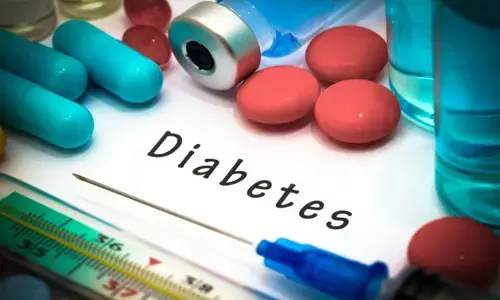- Home
- Medical news & Guidelines
- Anesthesiology
- Cardiology and CTVS
- Critical Care
- Dentistry
- Dermatology
- Diabetes and Endocrinology
- ENT
- Gastroenterology
- Medicine
- Nephrology
- Neurology
- Obstretics-Gynaecology
- Oncology
- Ophthalmology
- Orthopaedics
- Pediatrics-Neonatology
- Psychiatry
- Pulmonology
- Radiology
- Surgery
- Urology
- Laboratory Medicine
- Diet
- Nursing
- Paramedical
- Physiotherapy
- Health news
- Fact Check
- Bone Health Fact Check
- Brain Health Fact Check
- Cancer Related Fact Check
- Child Care Fact Check
- Dental and oral health fact check
- Diabetes and metabolic health fact check
- Diet and Nutrition Fact Check
- Eye and ENT Care Fact Check
- Fitness fact check
- Gut health fact check
- Heart health fact check
- Kidney health fact check
- Medical education fact check
- Men's health fact check
- Respiratory fact check
- Skin and hair care fact check
- Vaccine and Immunization fact check
- Women's health fact check
- AYUSH
- State News
- Andaman and Nicobar Islands
- Andhra Pradesh
- Arunachal Pradesh
- Assam
- Bihar
- Chandigarh
- Chattisgarh
- Dadra and Nagar Haveli
- Daman and Diu
- Delhi
- Goa
- Gujarat
- Haryana
- Himachal Pradesh
- Jammu & Kashmir
- Jharkhand
- Karnataka
- Kerala
- Ladakh
- Lakshadweep
- Madhya Pradesh
- Maharashtra
- Manipur
- Meghalaya
- Mizoram
- Nagaland
- Odisha
- Puducherry
- Punjab
- Rajasthan
- Sikkim
- Tamil Nadu
- Telangana
- Tripura
- Uttar Pradesh
- Uttrakhand
- West Bengal
- Medical Education
- Industry
Excellent blood sugar control by liraglutide in diabetics on beta-blockers

The glucagon-like peptide-1 (GLP-1) agonist drug, liraglutide, seems to provide excellent blood sugar control in patients with type 2 diabetes who are also taking a beta-blocker, specifically propranolol, to prevent bleeding from esophageal varices due to cirrhosis, but it seems to hamper the pharmacological effects of beta-blockers.
A case report has been published in Annals of Internal Medicine.
Cirrhosis is the leading cause of portal hypertension with an increased risk of developing esophageal varices.Beta-blockers are used to lower portal pressure and decrease the risk of bleeding from esophageal varices and decrease mortality.
When using beta-blockers to prevent bleeding from esophageal varices, clinicians use the resting heart rate as a guide, as these therapies lower heart rate. GLP-1s are used to treat diabetes because they lower blood sugar levels and are especially useful when the patient is obese and has nonalcoholic fatty liver disease, but they are known to increase heart rate, although not significantly. No data are available on the concomitant treatment with GLP-1 analogues and β-blockers in patients with cirrhosis and diabetes.
Researchers from University of Bologna, Policlinico Sant'Orsola-Malpighi, Bologna, Italy studied 18 consecutive patients with cirrhosis who were receiving propranolol to prevent variceal bleeding while also receiving liraglutide for uncontrolled type 2 diabetes. Liraglutide provided optimal control of blood sugar, HbA1c and body weight, but the researchers observed a lack of optimal effect of beta-blockers on heart rate after starting a GLP-1 receptor agonist. However, in this small cohort no increase in bleeding rate was observed. The researchers propose a mechanistic molecular explanation of how a GLP-1 receptor agonist might prevent beta-adrenergic receptor blockade.
For further reference log on to: https://www.acpjournals.org/doi/10.7326/L20-0041
Dr Kamal Kant Kohli-MBBS, DTCD- a chest specialist with more than 30 years of practice and a flair for writing clinical articles, Dr Kamal Kant Kohli joined Medical Dialogues as a Chief Editor of Medical News. Besides writing articles, as an editor, he proofreads and verifies all the medical content published on Medical Dialogues including those coming from journals, studies,medical conferences,guidelines etc. Email: drkohli@medicaldialogues.in. Contact no. 011-43720751


